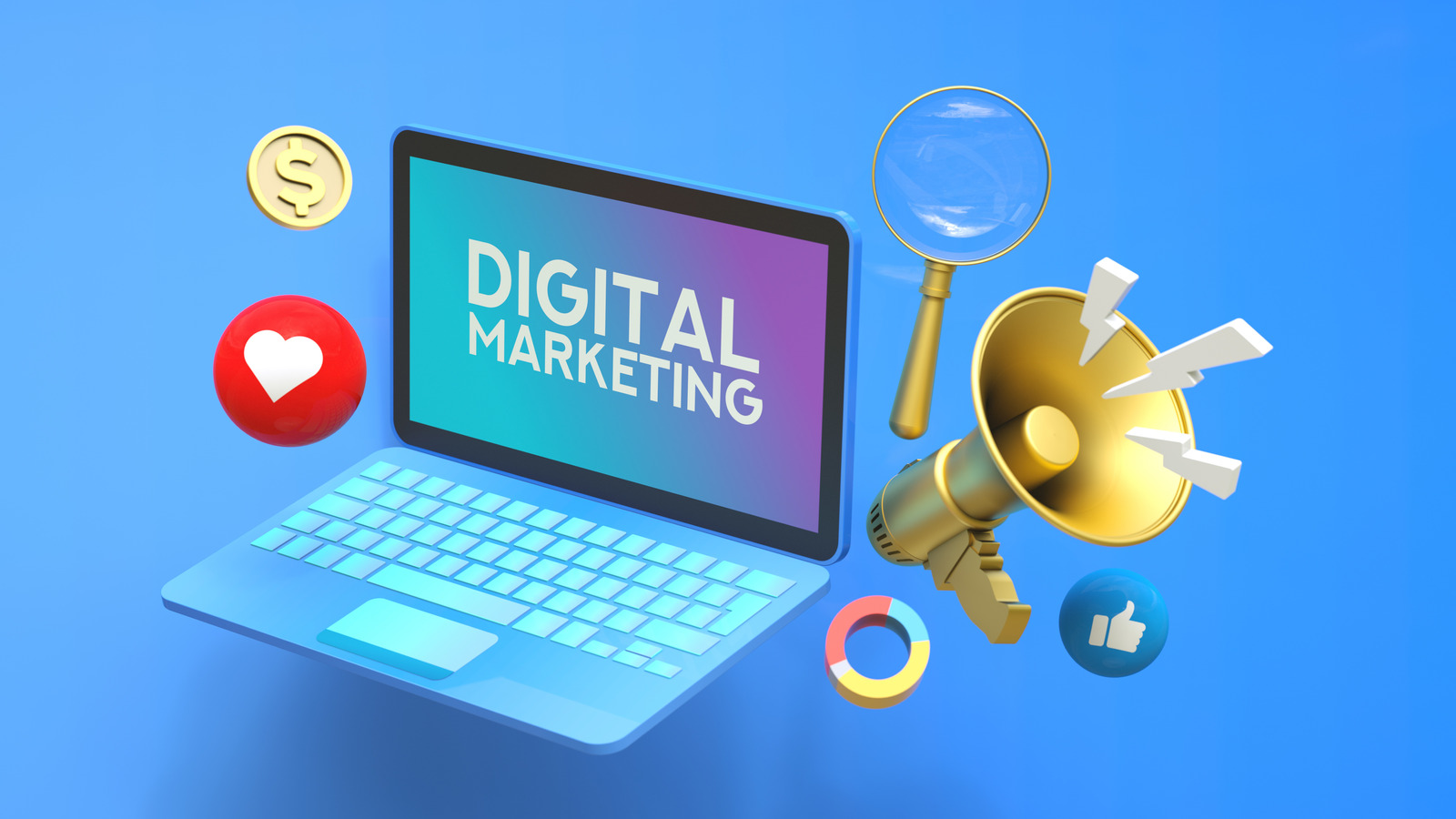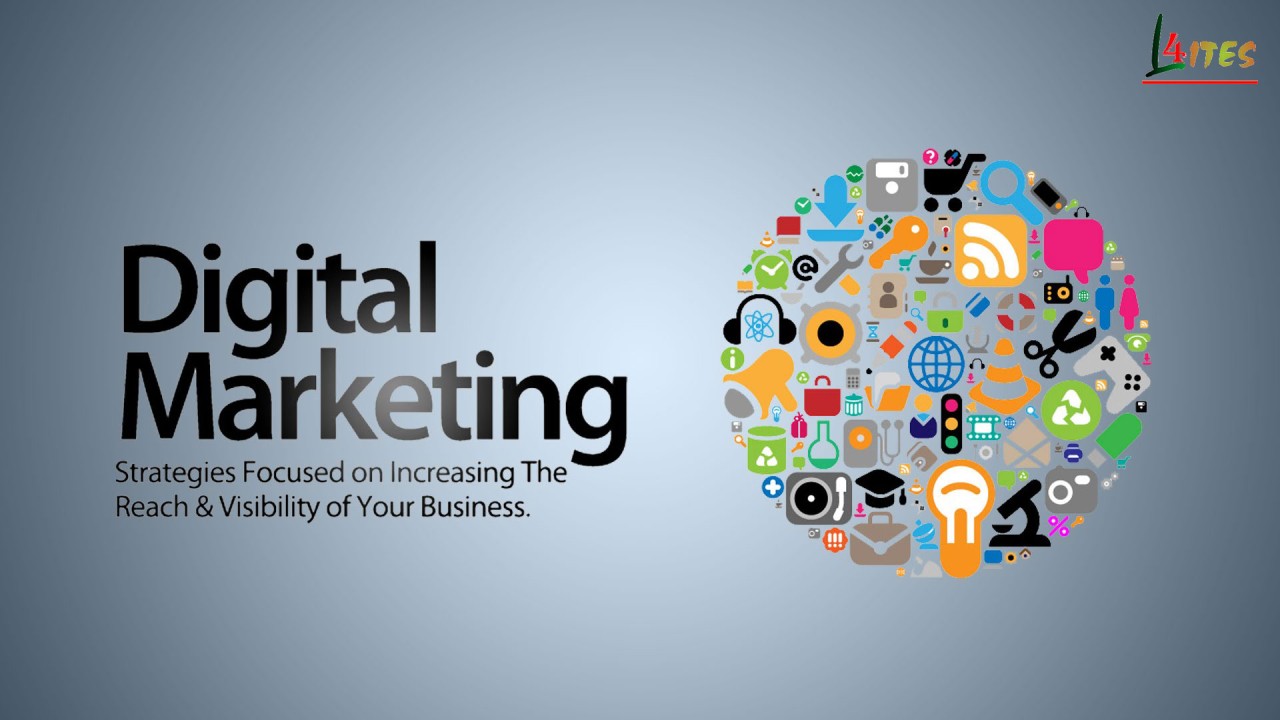
The digital marketingworld is one place where one thing is certain; things are continuously changing, and they change quickly. The incredible growth of artificial intelligence (AI) that we have witnessed in 2023 is one such instance. In 2024, this phenomenon will still be affecting all facets of marketing.
The external environment and customer behavior have an impact on marketing as well. The OECD predicts that inflation will likely decline and global growth will be moderate, but consumers will still be price vigilant.
Furthermore, the majority of consumers are inclined to look for businesses that demonstrate that they care about society as a whole as well as their financial success.
Success in 2024 will need a lot of work, but it will be simpler to plan, strategize, and outperform the competition if you are aware of the trends that will emerge in the future. In this article, we'll examine the digital marketing predictions for 2024that you need to be aware of in 2024.
Navigating The Evolving Landscape Of Digital Marketing
The evolving landscape of digital marketing is a dynamic and ever-changing ecosystem shaped by the rapid progression of technology and shifting consumer behaviors. In recent years, we've witnessed significant transformations, and as we approach 2024, the pace of change is accelerating.
One notable aspect of this evolution is the emphasis on content marketing. Brands are increasingly recognizing the importance of creating valuable, relevant, and engaging content to connect with their audiences.
The focus has shifted from intrusive advertising to building authentic relationships through storytelling and informative materials. This shift aligns with the changing preferences of consumers who seek meaningful interactions with brands rather than being passive recipients of marketing messages.
Artificial Intelligence (AI) is playing a pivotal role in shaping the digital marketing landscape. From AI-driven chatbots enhancing customer interactions to predictive analytics guiding targeted marketing strategies, businesses are leveraging advanced technologies for more efficient and personalized campaigns.
Social media is undergoing continuous evolution, influenced by changing algorithms and the growing significance of social commerce. As platforms introduce new features and algorithms, marketers must adapt to optimize organic reach and capitalize on the rising trend of social commerce.
The evolving landscape demands marketers to stay agile, embrace innovation, and anticipate trends to remain competitive in this dynamic era of digital marketing.
Emerging Digital Marketing Trends In 2024
Metaverse
The term "virtual world within a world" is frequently applied to the Metaverse, which is now owned by Meta (Facebook). It's an uncharted digital realm where everyone may connect in an interactive environment created by virtual or augmented realities.
Video games and having a digital version of yourself in a future where you can do anything you want have a lot in common.
A network of realities/virtual worlds where space exists almost everywhere has made social trading possible. Because of this, modern digital marketers have found a means to close that gap and establish an entirely new category of digital marketing using video.
Zero-Party Data (And The Rise Of Quizzes)
Businesses looking to safeguard their website users' privacy and tailor their marketing approaches are finding that zero-party data is a goldmine. Zero-party data is information that users voluntarily and deliberately disclose, as opposed to first-party data, which is gathered through user interactions such as browser history.
Even while customer surveys have been around for a while, in 2024, we should witness an increase in entertaining, interactive quizzes.
Visitors can communicate their preferences with a businessentertainingly and engagingly by taking quizzes. In exchange, companies receive insightful feedback straight from their target market, which helps them better adjust their marketing tactics.
Through increased trust and loyalty, this open line of communication strengthens the bond between the brand and its patrons. Zero-party data via surveys and other direct means of communication may be something to think about using for your digital marketing plan next year, especially as privacy concerns grow.
Voice Search
Research found that 55% of youngsters use voice search on a daily basis. Given how standard technology is among today's youngsters, voice search is set to become more prevalent in the years to come.
The majority of us got voice searches on our smartphones in 2014, and it's becoming more and more common. Furthermore, twenty percent of families have acquired Alexa and Google Home smart speakers, which are growing in popularity.
Voice-activated gadgets are gradually becoming more and more accepted by people, which suggests that this new method of doing things is here to stay.
Google claims that the accuracy rate of its voice search is 95% for the second time. Improved search accuracy has led to an increase in voice search's ease of use. In addition, using your voice to request things is now more accessible and more precise, making the experience more customized and engaging.
It is projected that voice search will be used for 50% of all online transactions by 2024. There is an astounding $40 billion in unrealized potential for digital marketers. Future-proofing your website for voice search is essential due to several development factors.
The AI Approach
Since they were available a few years ago, artificial intelligence and machine learning have entirely changed the marketing industry by giving owners and marketers access to real-time data that can be used to improve customer service, optimize product lines and pricing strategies, and much more.
Chatbots will be used in marketing in the future to mimic a consumer conversation as part of the AI-first strategy. Even while some physical establishments employ chatbots, we can be sure that in the future, both online and offline businesses will use them often to promote goods and services.
Reviews in Forbes Magazine suggest that chatbots will set the standard for marketing in the future. In actuality, the market value of artificial intelligence, which was valued at 93.53 billion USD, is predicted to reach 190.61 billion USD in 2025.
Voice-activated chatbots will enhance customer service encounters and enhance product promotion keyboard connections. They will be utilized to help a consumer close a deal in addition to communicating product information. Future business trends that are employed to advance a product brand go beyond customer service.
By 2024, the AI method will also be utilized to measure views and sales through the usage of enhanced analytics. Furthermore, analytics may be helpful in monitoring marketing trends, which offline advertising can make challenging unless you collaborate with services.
Answer Engine Optimization (AEO)
In the ever-evolving landscape of search engines transitioning into answer engines, Answer Engine Optimization (AEO) is gaining prominence. AEO centers on refining content to address anticipated user questions directly. This strategy requires a deep understanding of user intent, emphasizing the delivery of concise, accurate, and authoritative answers within the content.
Its significance is particularly highlighted in optimizing for voice searches and featured snippets, where prioritizing direct, informative responses is crucial. Brands aspiring to excel in AEO need to generate content tailored to specific queries, anticipate potential follow-up questions, and offer comprehensive, user-friendly answers.
PPC Ads - Automating Campaigns With Performance Max
With the use of AI-powered automation, Google's Performance Max (PMax) has revolutionized PPC campaign management.
With the use of artificial intelligence (AI), this technology maximizes ad effectiveness across all Google platforms, including YouTube, Display, and Search. Ads are sent to the most relevant audience with the most successful messaging according to Performance Max's automated decision-making process, which is based on real-time data.
This makes advertising spending more efficient and lightens the strain on marketers, freeing them up to concentrate on strategy and creative work. Performance Max revolutionized PPC advertising by providing a more efficient and successful method.
AI Influencers On Social Media
In 2024, AI influencers will drastically change the social media marketing scene. These artificial intelligence (AI)-generated virtual personalities are becoming more and more well-known due to their capacity to interact with followers in novel ways.
An unprecedented degree of consistency and control in influencer marketing is possible with AI influencers, as they can be trained to represent specific brand values and aesthetics. They allow for round-the-clock involvement since they are not constrained by time or location.
Because AI influencers can draw and hold an audience's attention freshly and engagingly, marketers are using them more and more in their campaigns. 43.8% of marketingprofessionals are concerned about the ethical considerations of AI influencers.
AI Marketing Automation
Recently, artificial intelligence (AI) has generated a lot of buzz, with many claiming that it could eventually control every aspect of human life. Sixty percent of internet users may receive answers to their inquiries on many applications or websites at once by using an AI Chabot.
The content we consume on social media contains a lot of artificial intelligence (AI), which is meant to keep us interested for longer! It is, therefore, an excellent chance for digital marketers to leverage this state-of-the-art technology, which is projected to be valued at $190 billion by 2025.
Businesses can now analyze data, tailor consumer experiences, and improve campaigns in new ways thanks to the integration of AI with marketing. AI-driven chatbots and messaging applications, for example, are transforming consumer interactions by offering instantaneous solutions and tailored experiences, therefore fostering more genuine customer relationships.
AI-driven marketing technologies, such as voice search optimization, chatbots, and predictive analytics, will be much more common by 2024. Business executives must, however, push for a more cooperative relationship between people and AI instead of only depending on "set it and forget it" automated techniques.
User-Generated Content (UGC)
UGC offers social evidence and engagement, making it a potent tool for brand promotion. By holding interesting challenges and contests with particular hashtags, themes, or formats and by paying the top submissions, brands may promote the development of user-generated content. Reach and engagement may also be increased by collaborating with relevant influencers.
UGC involves the audience in the development of content, which may increase consumer loyalty and brand trust. This strategy may help create a feeling of community among customers and mold the narrative surrounding businesses.
Blockchain In Digital Marketing
Blockchain technology is revolutionizing digital marketing by addressing critical concerns around security and transparency. In an era where data integrity is paramount, blockchain ensures tamper-resistant and decentralized storage of marketing data. This not only fortifies cybersecurity but also mitigates the risk of fraudulent activities.
Additionally, blockchain's transparent and immutable ledger enhances trust between marketers and consumers, fostering a more accountable ecosystem.
By enabling secure transactions, verifying ad impressions, and ensuring the authenticity of user data, blockchain emerges as a pivotal force shaping a future where transparency and security are foundational pillars of digital marketing practices.
Privacy And Data Protection
Businesses need to put customer trust and data protection first as data privacy becomes more and more scrutinized. Companies with solid data privacy procedures and open data policies will have an advantage over rivals by 2024.
To keep customers' confidence and loyalty, firms will need to adopt secure data collecting and storage practices, get explicit consent, and abide by changing privacy laws.
Businesses that exhibit an unwavering dedication to safeguarding personal information will not only successfully negotiate the difficulties of data privacy but also strengthen their image as reliable guardians of client data as customers grow increasingly watchful of how their data is handled.
Progressive Web Apps
One of the most important digital marketing trends for 2024 is optimizing for Progressive Web Apps (PWAs) as mobile Internet usage continues to climb. These applications provide a smooth and engaging user experience by fusing the most significant features from both online and mobile apps.
For instance, customers can browse and place orders with ease using Starbucks PWA, which mimics the functionality of native apps without requiring downloads. This novel strategy dramatically increases accessibility and mobile user engagement, establishing PWAs as essential for companies aiming for digital excellence in 2024.
Brands may provide quicker, more dependable, and more engaging user experiences by utilizing PWAs, which are precisely in line with the modern era's progressive digital marketing trends.
The Rise Of Social Media SEO
The term "social media SEO" describes the process of content optimization for increased exposure and interaction on social media sites. It entails employing calculated techniques, including strategic hashtag usage, the integration of pertinent keywords, and the creation of shareable, exciting material that is optimized for the algorithms of various social media networks.
This strategy improves a brand's social media presence, expands the audience for its content, and encourages greater engagement from its target market. With this strategy, the material is optimized for social networks to perform better by employing descriptive keywords, relevant hashtag use, and visually appealing content.
Because so many people now find material through social media feeds directly, social media search engine optimization is starting to become just as important as conventional SEO.
By using these strategies, companies may improve their presence on platforms where their target audiences spend a lot of time, raise the discoverability of their content, and encourage more interactions.
Hyper-Personalization And Crafting Tailored Experiences
The days of marketing that were designed to accommodate all consumers are long gone, as consumers now demand personalized experiences and messaging from businesses. By 2024, the relevance of this digital marketing trend, which involves customizing offers, recommendations, and content to each customer's requirements and preferences, will further increase.
According to Deloitte, 90% of consumers believe tailored marketing to be appealing. However, there is a mismatch between how customers view customization and how firms believe they are doing in this area. Segment reports that whereas 85% of businesses think they offer individualized experiences, just 60% of clients share this sentiment.
What Is The Impact Of Hyper-Personalization In Digital Marketing?
Increasing client happiness and loyalty may be achieved by incorporating hyper-customization into your digital marketing approach. Businesses may strengthen their relationship with their audience by providing content that speaks to each individual. Higher conversion rates and brand advocacy follow from this.
But before utilizing hyper customization, marketers should be aware of a few drawbacks. These include the need for high-quality data, resource constraints, and privacy issues.
How Do You Implement Hyper-Personalization Into Your Digital Marketing Strategy?
- To begin, gather and examine consumer information in order to comprehend their inclinations and actions.
- Make use of this information to provide content that is tailored for different platforms, including websites, social media, and email.
- Responsible use of AI can improve the capacity to provide highly customized experiences on a large scale.
Frequently Asked Questions
What's The Anticipated Impact Of Augmented Reality (AR) In E-Commerce?
AR will transform the e-commerce experience, allowing consumers to visualize products in their real-world environments.
How Will Marketers Address The Challenges Of Email Fatigue In 2024?
Marketers will combat email fatigue through targeted segmentation, personalization, and innovative content delivery.
Why Is Staying Adaptable Crucial For Success In The Dynamic Digital Landscape Of 2024?
Staying adaptable is vital to responding to emerging trends and technologies, ensuring sustained relevance and effectiveness.
Quick Recap
In the ever-evolving landscape of digital marketing, the insights into 2024 paint a vivid picture of transformative trends and digital marketing predictions for 2024. From the Metaverse redefining interactive experiences to the surge in voice search and AI-driven strategies, marketers must brace for a dynamic era.
User-generated content and a heightened focus on data privacy underscore the importance of trust and authenticity. As businesses navigate these trends, success in 2024 hinges on adaptability, ethical data practices, and a commitment to delivering personalized, meaningful customer experiences.




